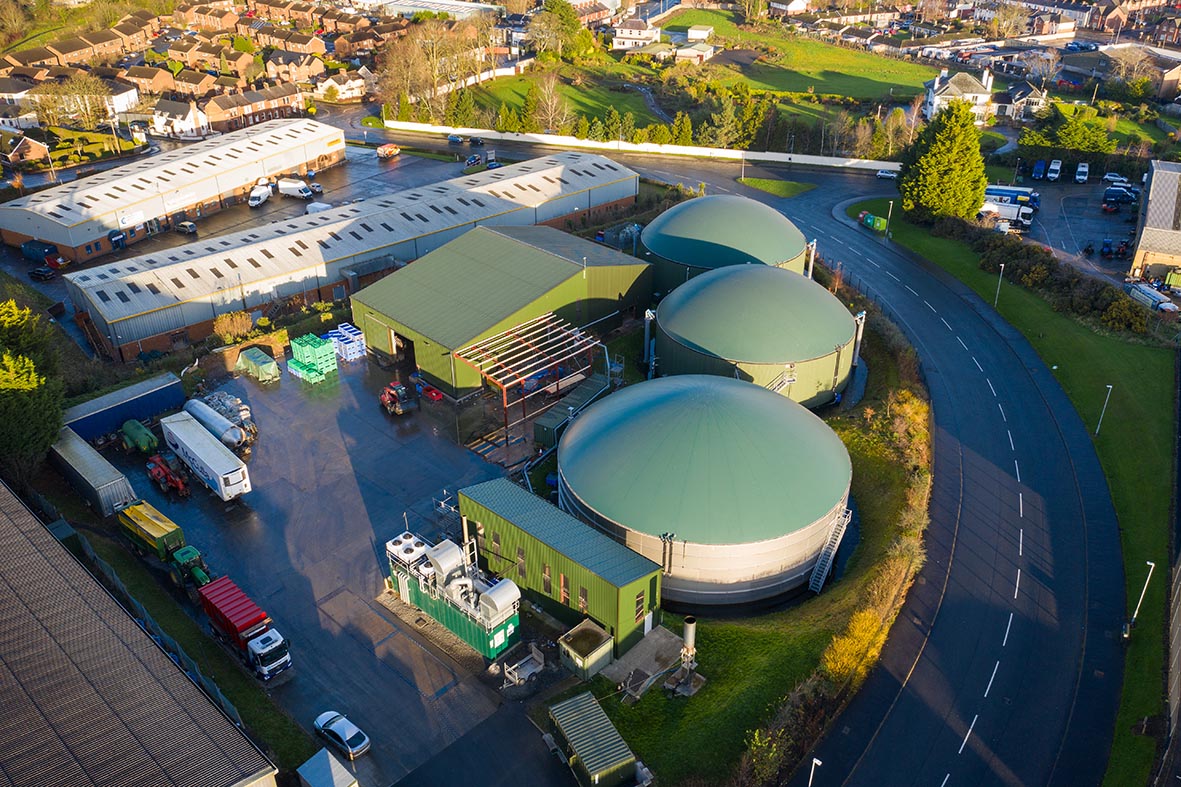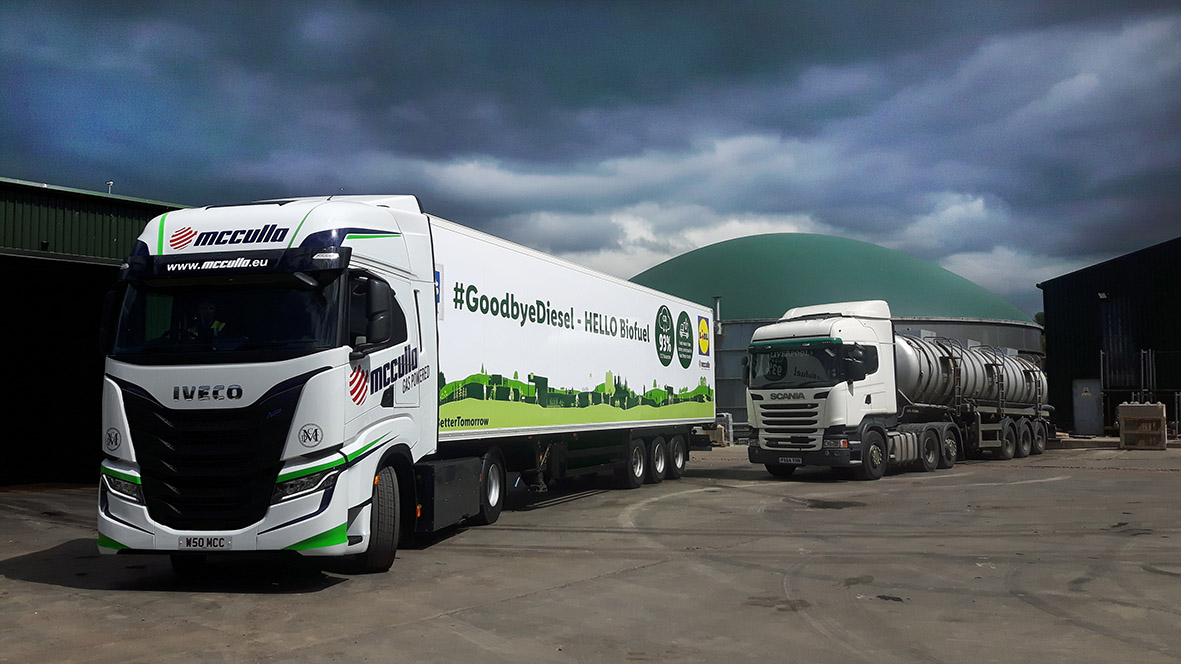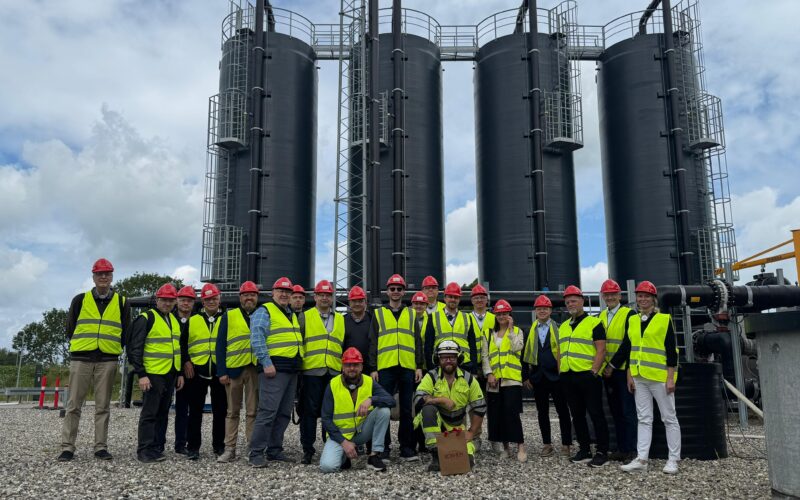Supermarket Chain Lidl uses biomethane produced from its own food waste as fuel for transport in Northern Ireland
«Goodbye Diesel – Hello Biofuel», — is exactly the slogan placed on 10 Lidl food trucks.
Northern Irish food logistics company McCulla Transport supplies the biofuel from its WELTEC BIOPOWER plant. Every lorry that runs on green fuel emits 93 percent fewer carbon emissions than a diesel truck. Thus, emissions and dependence on fossil fuels are reduced.
As one of Northern Ireland’s largest food transport companies with 235 employees and a cold storage facility of almost 8,500 square meters, McCulla has been supplying Lidl Northern Ireland’s supermarkets for years. And every year it does it more and more environmentally friendly.
The first stage of the biogas plant from WELTEC BIOPOWER was back in January 2017. As raw materials were used slurry, agricultural residues, and grass silage from McCulla’s agricultural business. At the time the production of renewable electricity and heat was achieved for the refrigerated warehouse at the company’s main logistics depot. This cogeneration plant has a capacity of 500 kW.

The biogas plant of the Northern Irish food logistics company McCulla Transport started producing biomethane in July 2021 following a plant expansion by WELTEC BIOPOWER and partner companies. At the site in Lisburn, 10 kilometers south of Belfast, 450 standard m³ of biogas are processed into biomethane/ RNG every hour. With this amount, the logistics company can operate ten new CNG trucks, which are refueled directly at the company’s new biomethane filling point. The use of RNG has resulted in the greenest fleet in Northern Ireland.
Raw materials
The substrates for the production of the green fuel come from the 41 Lidl supermarkets in Northern Ireland. The use of such raw materials became possible after the conversion of the biogas plant. 17,500 tons per year of food leftovers from Lidl stores will substitute the agricultural residues as substrate for the HGV fuel production.
Technologies
WELTEC BIOPOWER and Pentair Haffmans are the German biogas market leaders who were responsible for the technological solutions.
To ensure successful performance long-term, WELTEC BIOPOWER relied on its established components and technologies:
- Four pits are available for the pre-storage of the substrates.
- The subsequent anaerobic digestion takes place in two digesters made of stainless steel with a diameter of 23.03m, a height of 6.30m and a capacity of 2,625m³ each.
- The digestate is stored in a 3,432m³ stainless steel gas-tight storage tank.
In order to fully exploit the energy potential of the food waste, WELTEC has equipped the 80m³ dosing feeder in combination with the MULTIMix pre-feed system. In it, food leftovers are shredded and homogenised.
In addition, the Lidl waste is automatically unpacked and pasteurized at the biomethane plant. In the course of the extension, WELTEC BIOPOWER upgraded the in-house developed LoMOS PLC-based control system.

The company retrofitted the extra gas lines, installed a second emergency flare, and ensured that all components were connected smoothly with no downstream consequences on the original plant, which since commissioning has shown some of the top performance figures in the industry.
More than doubled the output of the initial 500 kW plant without further investment in fermentation equipment.
The change of the raw materials composition, in particular, the switching switching from grass silage and slurry to food wastes, does not affect the operation of the plant.
The biogas upgrading system comes from Pentair Haffmans. The tried and tested module separates carbon dioxide and other components of the biogas from methane using membrane technology.
Future plans
McCulla representers has already announced that the sustainable transport model will be applied to his entire truck fleet over the next five years.
Source: WELTEC BIOPOWER.


